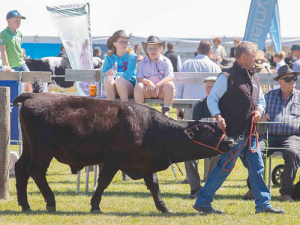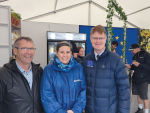New Zealand's biggest annual A&P show will go ahead with cattle classes on November 14 - 16 despite the threat of spreading Mycoplasma bovis.
But there will be no calf classes, and new measures will be taken to prevent infection spreading at the New Zealand Agricultural Show.
The Canterbury A&P Association (CAPA) has released a list of protocols to bolster biosecurity for the show. Junior classes will be on, but only with yearling animals, not calves.
Even the simple act of the judges draping the winners’ ribbons over winning cattle is to be banned. Instead, they will pass the ribbons to their handlers, and they will be banned from touching animals’ heads or muzzles.
Other measures in the show ring include a strict 2m space between parading animals and a one-way traffic system between the ring and the cattle pavilion.
In the pavilion, empty pens and plywood panels will create buffers and barriers between animals from different herds. There will be separate dairy and beef washing bays, each run on a roster system and rigorously disinfected.
Extra staff will be on hand to manage cattle, with strict requirements for proper paperwork and no late entries accepted.
The show vice-president, North Canterbury cattle breeder Chris Herbert, said there had been no known infections from nose-to-nose contact between neighbouring herds so the actual risk of transmission was extremely low.
The new protocols are to give exhibitors confidence to attend.
“I’ve had exhibitors ring me since that information went out and they’ve said ‘we weren’t planning on coming but if you’re going to put these protocols in place, actually it will be OK. We will come’.”
The banned calf classes usually attracted only 10 - 15 entries. Herbert said they were often hand-reared pets and lifestylers’ animals, and it was “just too hard” to be sure of their histories.
Beef cows with calves at foot will be allowed.
Herbert said he does not expect cattle numbers this year to “break any records” but Canterbury is usually NZ’s biggest cattle show and he expects that to hold good.
Entries are now open.


















